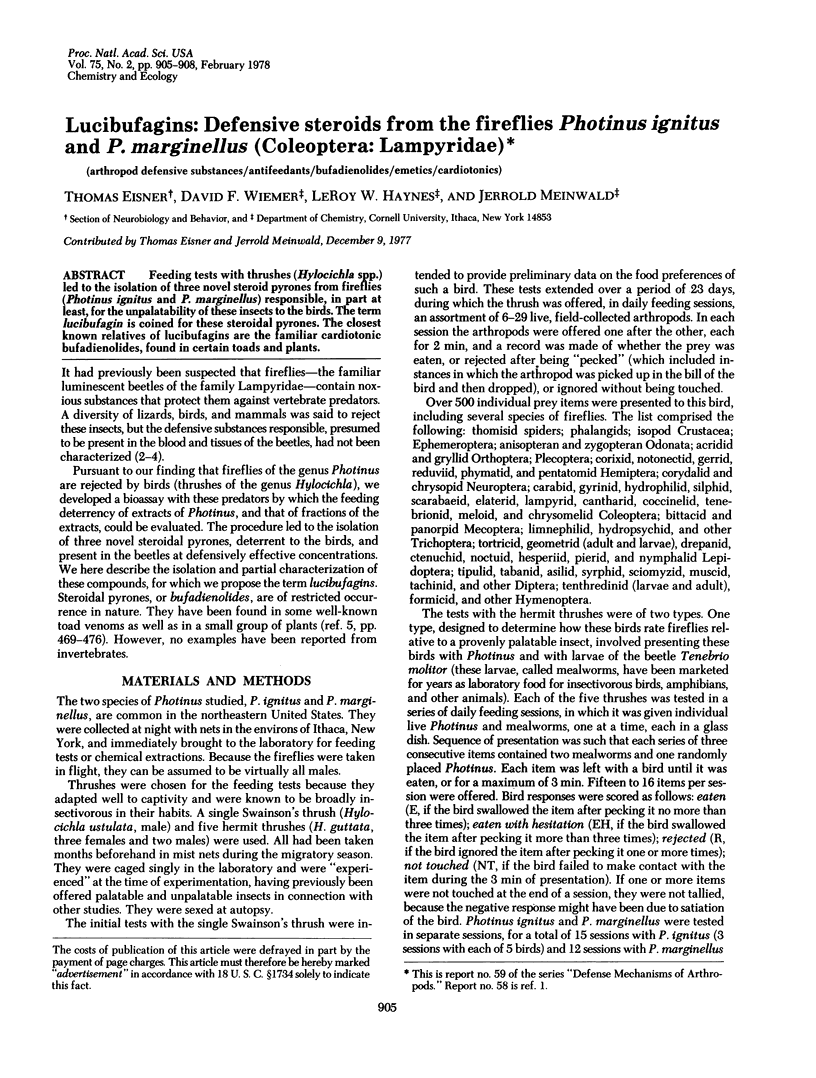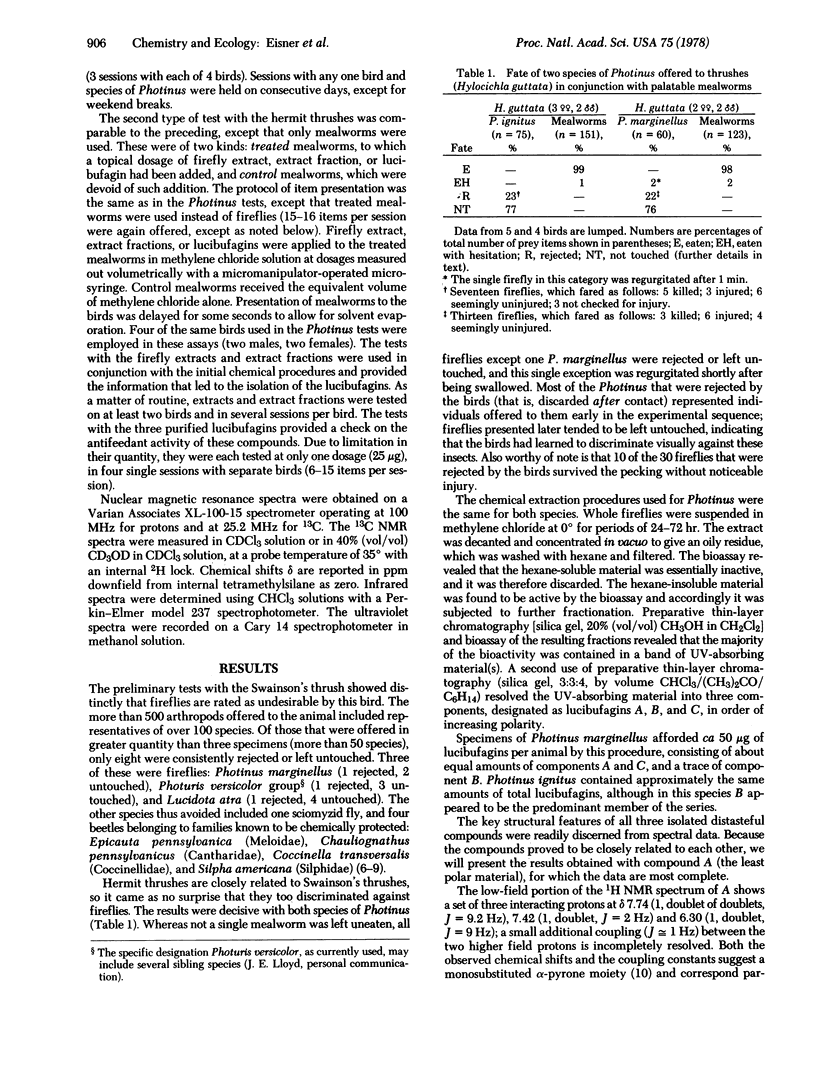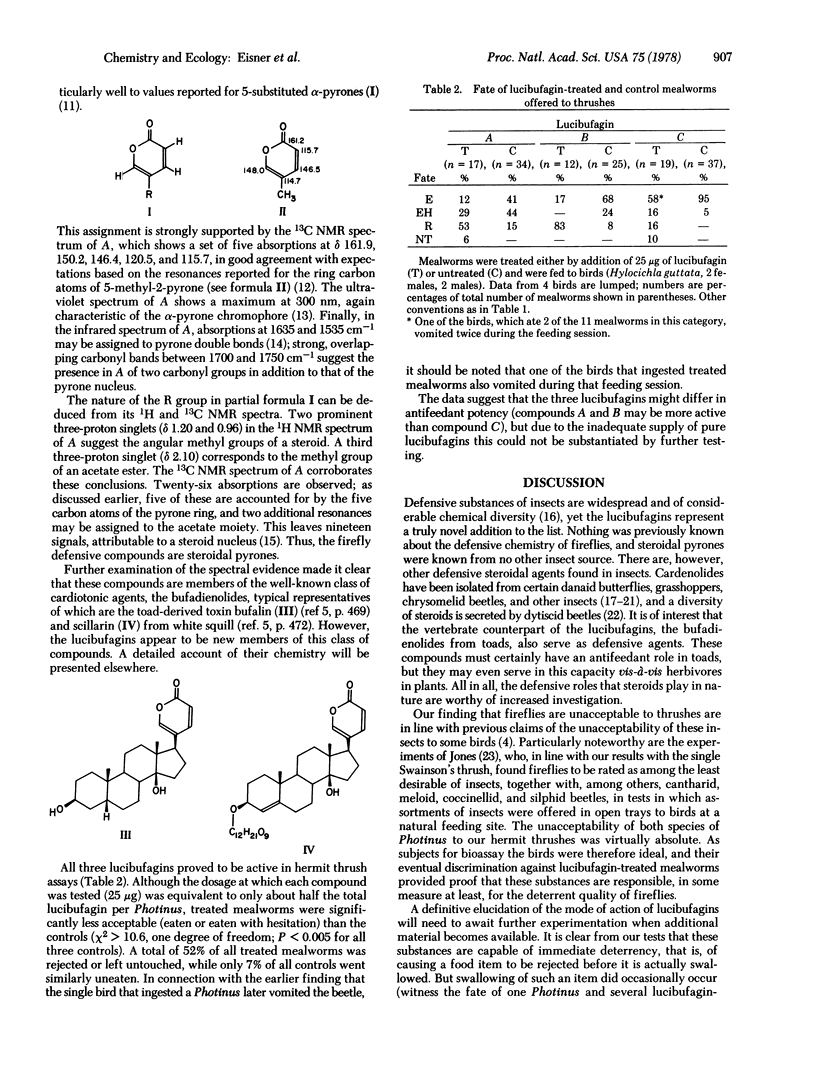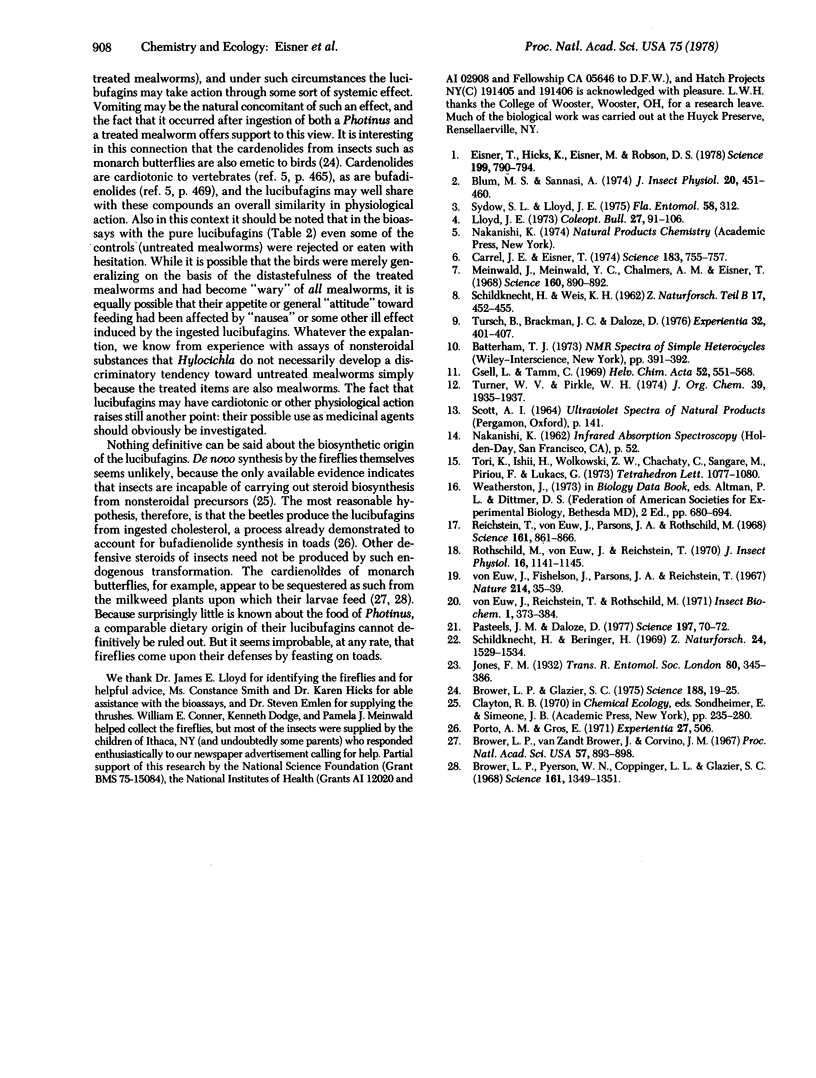Abstract
Feeding tests with thrushes (Hylocichla spp.) led to the isolation of three novel steroid pyrones from fireflies (Photinus ignitus and P. marginellus) responsible, in part at least, for the unpalatability of these insects to the birds. The term lucibufagin is coined for these steroidal pyrones. The closest known relatives of lucibufagins are the familiar cardiotonic bufadienolides, found in certain toads and plants.
Keywords: arthropod defensive substances, antifeedants, bufadienolides, emetics, cardiotonics
Full text
PDF



Selected References
These references are in PubMed. This may not be the complete list of references from this article.
- Brower L. P., Glazier S. C. Localization of heart poisons in the monarch butterfly. Science. 1975 Apr 4;188(4183):19–25. doi: 10.1126/science.188.4183.19. [DOI] [PubMed] [Google Scholar]
- Brower L. P., Ryerson W. N., Coppinger L. L., Glazier S. C. Ecological chemistry and the palatability spectrum. Science. 1968 Sep 27;161(3848):1349–1350. doi: 10.1126/science.161.3848.1349. [DOI] [PubMed] [Google Scholar]
- Brower L. P., van Brower J., Corvino J. M. Plant poisons in a terrestrial food chain. Proc Natl Acad Sci U S A. 1967 Apr;57(4):893–898. doi: 10.1073/pnas.57.4.893. [DOI] [PMC free article] [PubMed] [Google Scholar]
- Carrel J. E., Eisner T. Cantharidin: potent feeding deterrent to insects. Science. 1974 Feb 22;183(4126):755–757. doi: 10.1126/science.183.4126.755. [DOI] [PubMed] [Google Scholar]
- Eisner T., Hicks K., Eisner M., Robson D. S. "Wolf-in-Sheep's-Clothing" Strategy of a Predaceous Insect Larva. Science. 1978 Feb 17;199(4330):790–794. doi: 10.1126/science.199.4330.790. [DOI] [PubMed] [Google Scholar]
- Gsell L., Tamm C. Magnetische Protonenresonanz-Spektroskopie der Bufadienolide (steroidartigen Krötengifte) Helv Chim Acta. 1969;52(2):551–568. doi: 10.1002/hlca.19690520223. [DOI] [PubMed] [Google Scholar]
- Meinwald J., Meinwald Y. C., Chalmers A. M., Eisner T. Dihydromatricaria acid: acetylenic acid secreted by soldier beetle. Science. 1968 May 24;160(3830):890–892. doi: 10.1126/science.160.3830.890. [DOI] [PubMed] [Google Scholar]
- Pasteels J. M., Daloze D. Cardiac glycosides in the defensive secretion of chrysomelid beetles: evidence for their production by the insects. Science. 1977 Jul 1;197(4298):70–72. doi: 10.1126/science.867051. [DOI] [PubMed] [Google Scholar]
- Porto A. M., Gros E. G. Biosynthesis of the bufadienolide marinobufagin in toads Bufo paracnemis from cholesterol-20-14C. Experientia. 1971 May 15;27(5):506–506. doi: 10.1007/BF02147562. [DOI] [PubMed] [Google Scholar]
- Reichstein T., von Euw J., Parsons J. A., Rothschild M. Heart poisons in the monarch butterfly. Some aposematic butterflies obtain protection from cardenolides present in their food plants. Science. 1968 Aug 30;161(3844):861–866. doi: 10.1126/science.161.3844.861. [DOI] [PubMed] [Google Scholar]
- Rothschild M., von Euw J., Reichstein T. Cardiac glycosides in the oleander aphid, Aphis nerii. J Insect Physiol. 1970 Jun;16(6):1141–1145. doi: 10.1016/0022-1910(70)90203-9. [DOI] [PubMed] [Google Scholar]
- Schildknecht H., Birringer H. Uber Arthropoden-Abwehrstoffe. XLIV. Die Steroide des Schlammschwimmers Ilybius fenestratus, 3. Z Naturforsch B. 1969 Dec;24(12):1529–1534. [PubMed] [Google Scholar]
- von Euw J., Fishelson L., Parsons J. A., Reichstein T., Rothschild M. Cardenolides (heart poisons) in a grasshopper feeding on milkweeds. Nature. 1967 Apr 1;214(5083):35–39. doi: 10.1038/214035a0. [DOI] [PubMed] [Google Scholar]


